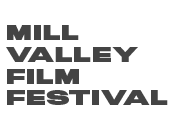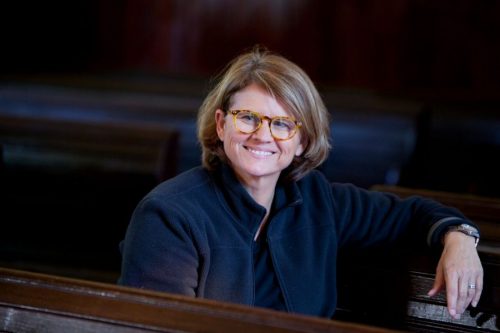MEET THE FILMMAKER
FRANCES CAUSEY, THE LONG SHADOW
Even from a very young age, Frances Causey felt that something about her surroundings weren’t right. With a family history tied to the Confederacy, much of her childhood was defined by “growing up in what I considered the apartheid South and seeing how African Americans were treated. As a young child I knew something was deeply wrong.” She grew up with two African American women cooking and cleaning at her house, and recalls one story in particular that continued to resonate within her well into adulthood.
“Jimmy Mae was a lovely woman who cleaned our house,” Causey recalled, “and I came home one day and she had tried to take a message over the phone – but she couldn’t write a complete sentence. She had been forced to leave school in elementary school. It was shocking to me and it never left me.”
Causey tapped into that deeply unsettled feeling and pursued a career in journalism, writing for CNN for nearly 15 years. It was at the tail end of those years that “the dots connected” and she turned her attention to documentaries and started her own documentary filmmaking company.
Her first film, released in 2002 and titled The Wendell Scott Story, told the story of Wendell Scott, the first African American stock-car racer. It was soon picked up by The History Channel.
Causey’s most recent documentary, The Long Shadow, is set to premiere at MVFF this October. This isn’t her first time screening work at the Festival; in 2011 MVFF screened her feature documentary Heist: Who Stole The American Dream?
Causey now splits her time between Arizona, where she lives with her partner, and in Berkeley, where she collaborates with local filmmakers and in particular with the Zaentz Media Center in Berkeley. All of her post-production team comes from the Center, which she describes as a “virtual co-op for documentaries,” founded by Saul Zaentz, who produced such acclaimed films as One Who Flew Over The Cuckoo’s Nest and The English Patient.
The Long Shadow takes a more personal approach, delving into her own family history of slave ownership and white privilege as members of the Southern Confederacy.
“James Baldwin said that white people are trapped in a history they don’t understand,” she said. “I love history insofar as it shines light on the present. I like to make films that give context to headlines. We need some context to understand how we got here. I hope the film will prompt a national discussion about some type of reparations needed for the African American community. We haven’t even agreed as a nation to have a discussion on the history and effects of slavery.”
Due to the film’s subject, Causey was particularly sensitive to how the documentary approached telling the story of slavery and racial oppression in the States.
“One of my fears was – how can I as a white person possibly tell the story of African American slavery?” she said. “That story was not for me to tell, but slavery is also an ‘American’ story that white people need to claim responsibility for. My film also addresses the creation myths around the US, the fact that we were so committed to slavery at our founding and implications of that. White imposition and violence in America against African Americans has continued even after the Civil Rights Act. Where we are today is a chance for white people to understand this terrible history and, more importantly, its impacts.”
Beyond educating audiences, Causey hopes her film will spark action and tangible change, both on a national and international level. Her team is in the process of creating a study guide to accompany the film, and the Bay Area’s chapter of Showing Up For Racial Justice will co-present the film at MVFF.
Causey will also attend the screenings at MVFF and participate in Q&As with audiences following the screenings. “MVFF is so fiercely independent and has so much integrity,” she said. “MVFF is the real deal, where filmmakers want their films shown. It has integrity and vision and we’re enormously honored to be included.”
So, what can audiences do to promote healing and change in their own communities? The first step, Causey says, is to see the film.
“Sally [Holst, Producer] and I really want audiences to be open to hearing stuff that’s not easy to hear,” she continued. “But at the end of the film you’ll be glad that you bought a ticket and you’ll be forever changed. I hope so.”
Director Frances Causey will attend the screening of The Long Shadow at the 40th Mill Valley Film Festival on Saturday, October 7 at 6:00pm at the Lark Theater.




